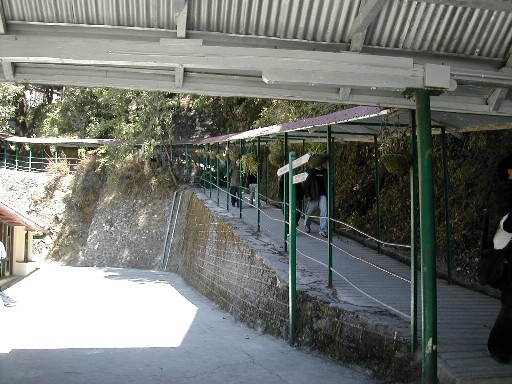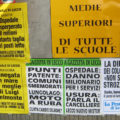“When I was a kid, we used to tape music off the radio. You never heard of record companies suing people for that.” New York Times, Sept 10, 2003
Okay, I admit it: I’ve been pirating music for a long time.
The earliest copyright infringement I can recall perpetrating myself occurred in Bangladesh. I was 14 years old, and loved music as much as any normal teenager does, although my tastes were probably a bit more eclectic than most. It wasn’t possible to buy records or tapes of western music in Dacca at that time, so we of the foreign community all borrowed from each other. But how to make a copy so I could keep it? I had one of those old-style tape cassette players that was long and flat with a tray that opened up on top, and one small speaker. It could also be used to record, through an incorporated mic. I would position that in front of our higher-end early-model JVC boombox, and record from speaker to mic. Very low fi indeed, but I didn’t care about quality – I was just hungry for the music.
In India it was possible to buy cassettes of western music, but, on our boarding school allowances, who could afford it? And the selection was always months to years behind what was current in the US. Some kids brought record or tape collections with them, and we copied each other’s tapes, using the speaker-to-mic method. My roommate’s mother would sometimes send tapes made from the radio during her US trips, which gave us a chance to catch up on current music, though it was distinctly weird to sit in a dorm room in Mussoorie and hear news and advertising from a town in Massachusetts.
VCRs weren’t around then. An Indian classmate returned from four or five years in San Francisco a raving Trekkie, a passion I somewhat shared. In desperation, before leaving the States he had recorded the soundtracks of Star Trek reruns from his TV, and we used to listen to those together. So I have heard the celebrated “Trouble with Tribbles” episode, but to this day have never seen it!
When my dad and stepmom moved to Thailand, I discovered a whole new way to get music. In Bangkok you could go to a record shop where they didn’t actually sell any records. You would go through their (huge) selection and pick out the music you liked; they would record it onto cassette tapes for you, complete with hand-typed song lists. This was very cheap and efficient – you could get two whole albums onto a 90-minute cassette. If there was space left over, they would sometimes fill it with random stuff, giving you a chance to discover something new.
Back in the US, it was common to go through a friend’s record collection and ask them to tape stuff for you, although this was a lot to ask, LP-to-tape recording being rather a pain. By then I had a fancy tape deck purchased in Hong Kong, with a feature that would fast-forward to the next silence on the tape, so you could easily skip a song you didn’t like. High tech, for those days.
I bought a few commercially-recorded cassette tapes in the US, but they were expensive, and not very durable – they tended to stretch after only a few months: built-in obsolescence? The tapes I had made in Thailand are still fine 20 years later.
In 1984, while visiting my dad in Indonesia, I learned that Indonesia had never signed the International Copyright Convention. You could get anything on tape there, very cheaply, mass-produced with printed labels. Sometimes the label would have a photograph of the original album cover cut out and pasted on to add authenticity. I bought dozens of tapes, though I knew that, technically, it was illegal to take them back to the US. Having music available at such low prices encouraged me to explore new artists and genres; I could pick up something on impulse, and if I didn’t like it, so what?
These tapes, too, have proved durable, and also had their delightful surprises. Like the Thais, the Indonesians couldn’t stand to leave a minute of tape empty. They would record right to the end of Side A, and if a song got cut off in the middle, would re-start it on Side B. Then they’d fill the space left at the end of Side B with whatever came to hand, sometimes by the same artist, sometimes not. In one or two cases I loved some of these extras, and went crazy trying to figure out what they were so I could get more by whoever that was – the track lists weren’t always complete with artist and album names.
Some of cassette producers added value by including lyrics in a small booklet, but they didn’t always have the original lyrics to work from. I bought the soundtrack of “The Best Little Whorehouse in Texas,” where evidently someone who was not fluent in English tried to get the lyrics down by ear. Apparently he or she was inspired by the title to hear lyrics far more dirty than actually exist in the film! (I still have this tape somewhere, will have to dig it out and give some examples.)
…I was going to go off here into a diatribe about the RIAA, but will leave that for another time, or maybe never. There’s been plenty said on that topic, too, by wiser heads than mine.
Two weeks after I posted the above, the New York Times caught up with an article about similar practices elsewhere in the world, notably Indonesia. (“U.S. Is Only the Tip of Pirated Music Iceberg”, By MARK LANDLER, September 26, 2003). The head of a German music industry association is quoted as saying: “Housewives, who should be cooking, are burning [CDs].”
The article went on: “Mr. Gebhardt hopes the German music industry will bring its first lawsuit against a file sharer in a few months. In the meantime, it is trying to win back the public through sympathy rather than subpoenas.”
Mr. Gebhardt probably thought he was being cute, but his “housewives” remark certainly lost my sympathy.









